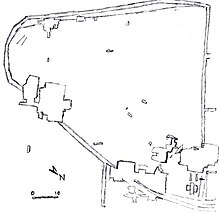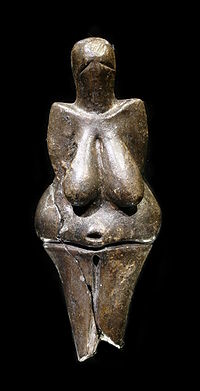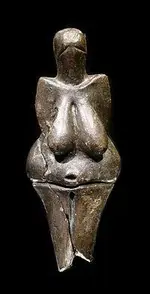Oroblanco
Gold Member
- Joined
- Jan 21, 2005
- Messages
- 7,841
- Reaction score
- 9,876
- Golden Thread
- 0
- Location
- DAKOTA TERRITORY
- Detector(s) used
- Tesoro Lobo Supertraq, (95%) Garrett Scorpion (5%)
Greetings,
<EDIT>I was in the process of posting this reply yesterday when I got bumped off and T-net went into maintenance, so my apologies for the delay.<end edit>
There were several points raised in Joe's response, so the reply got to be very long of necessity. I must ask your indulgence again, thank you in advance.
Sorry but no, my subscription ran out about the time that issue came out, which is how I knew about it. It is not *my* "oldest" ship, it was posted as an example that we do not know the earliest ship, for it has not been found - and likely won't. Wood does not survive for thousands of years in most environments. Point was that no "earliest date" for mans invention of ships ought to be carved in stone.
Cactusjumper also wrote
Well I am in the conversation because it intrigues me, you could probably learn more from others among our group than me; I have no axe to grind, nor any expectations to convince you or anyone else. I certainly do not have all the answers and am still learning, and have not done much research on the topic recently so much of what I have is fairly out of date. More on this in a moment.
Cactusjumper also wrote
It is not possible to make any sweeping statement about when the very first attempt was made to divert water from rivers for irrigation purposes, in fact simple ditch digging has been found in some of the oldest known human encampment sites that have no obvious purpose; for that matter, the flood irrigation systems (and accompanying raised mounds) in the recently discovered ancient sites in the Amazon jungle, formerly believed to have always been a pristine wilderness hostile to human occupation, may well prove to reach back to the Ice Age, and the similar flood-mound irrigation technology of the Titicaca basin has been estimated to date to 15000 years old by one researcher whose name escapes me at the moment.
Cactusjumper also wrote
I don't know your source for that date, but as I tried to point out in earlier posts, this date assignment is clearly not accurate. Perhaps you missed this, "The earliest seaworthy boats may have been developed as early as 45,000 years ago"
Cactusjumper also wrote
Again I do not know the source for this date, but we ought not be making assertions about exactly when such innovations appeared when there is no consensus even among historians. The wheel is one of the inventions that appears in different populations at different dates. Quote
"Up till now, it is still a mystery as to who invented the wheel and when the wheel was invented. According to archaeologists, it was probably invented in around 8,000 B.C. in Asia."
<http://library.thinkquest.org/C004203/science/science02.htm>
The oldest KNOWN wheel ever found is close to your date, as this source also points out, but as wheels were originally made of wood, the oldest are most probably long gone.
Cactusjumper also wrote
I do not know your source for that date, but like the others cited, it is a matter of dispute;
'How and when horses became domesticated is disputed. The clearest evidence of early use of the horse as a means of transport is from chariot burials dated c. 2000 BCE. However, an increasing amount of evidence supports the hypothesis that horses were domesticated in the Eurasian Steppes (Dereivka centered in Ukraine) approximately 4000-3500 BCE.[1][2][3]
<http://en.wikipedia.org/wiki/Domestication_of_the_horse>
There are cave paintings of horses wearing what appear to be for all intents and purposes, bridles with reins, up to 30,000 years old; new discoveries are pushing the date back, with a fair amount of political (nationalist pride) involved in the arguments presented by the various theorists.
"Horses may first have been tamed as long ago as 7000 BC, <snip> “The procured evidence may potentially debunk a previously established theory that the domestication of horses originated 5500 years ago in the Central Asian country of Kazakhstan,” the Vice-President of the Kingdom’s Commission for Tourism and Antiquities announced in a press conference in Jeddah.
“This site shows us clearly, the roots of the domestication of horses 9,000 years ago,” said Ali Al Ghabban, citing human DNA evidence that allowed researchers to date the prehistoric civilization to the New Stone Age.
A number of other artifacts, including handicrafts such as arrowheads, scrapers, grain grinders, tools for spinning and weaving were also unearthed and suggest that the ancient Neolithic society may have had skills that were more diversified than just horse-taming."
<http://arabiangazette.com/fresh-finds-in-saudi-arabia-may-alter-horses-domestication-history/>
According to this source, humans have been herding horses for some 50,000 years as meat animals; herding of livestock is a form of agriculture by most definitions of the term. It is but a small step from herding to riding the livestock, as we see even today in the Lapps of the high arctic riding on reindeer to help herd the rest; my bet would be that man started riding on horses not so long after they first started herding them. Horses, like dogs, are a rather tractable, easy to tame sort of animal. As is only recently being rediscovered, ala "horse whispering" to learn the secret language of signs (body language and attitudes) a human can become friends with a wild horse in a single day. Horseback riding was bareback for a very long time until the invention of saddles, so there can not be any artifacts to show that man was riding before the saddles appeared.
Cactusjumper also wrote
If we accepted those dates as absolutely definitive, then it would make Plato's Atlantis either a case of pure fantasy, or of mixing in anachronistic elements into the story, or of human innovations which arose in the Atlantian period but were lost with the end of Atlantis and later re-invented. However those dates are all disputed in the academic world, so we are not forced into making such a choice. I do not rule out the second possibility, that Plato was in fact borrowing features of the Minoans and northern Celts to flesh out his story and make it more romantic for his audience, (basing this on what Plato was accused of adding to the story - posted earlier - and the fact that other ancient sources do not include these same features like advanced plumbing and huge excavated canals for ships) but neither do I conclude that he must have done so.
We do not know all that much of our prehistory, and that is the period in which Plato set his Atlantis. Yet despite all the fanciful sounding details he described, none of them are so far out, so farfetched as to be virtually impossible. Who would have expected to find sophisticated plumbing of both hot and cold water, with flush toilets, in the ruins of Santorini for example? That civilization underwent a death blow by the volcanic eruption, which sealed those ruins for us to find, but those advancements were not re-invented for over a thousand years, to re-appear in Rome and Carthage. The size of the human brain has not undergone any major change in size for a very long time, we very often tend to think of our ancient ancestors as being primitive, superstitious and not too bright; the 'cave man' image, yet in fact they had brains the same size as our own, with the same capabilities of conceptualization and innovation. If Atlantis of 11,500 years ago existed, (I believe it did) there is no reason to state it is impossible for them to have had chariots, horses, or even triremes. A trireme for instance is really just an innovation of the old single row oared boat, it does not require an Archimedes or Einstein to think of adding extra rowers to attain greater force; and among any population of humans there have always been the free-thinkers who dream up new inventions or want to explore the far horizons.
If you are expecting to see absolute proof, like photos of the ruins of the ringed city, you will be disappointed for I certainly do not know of any such absolute proof. However perhaps tomorrow will see the unearthing of the fabled city, or one of its satellites, and the centuries long debate can be settled. I will leave you with something to think about; evidence that man was already taking the steps to what we consider "civilization" at a very early date, much earlier than we see in our history books - the site at Dolni Vestonice.

Ceramic (fired clay) Venus goddess figurine from Dolni Vestonice, dating to around 29,000 years ago.

This site was of a culture that built permanent homes, had specialization of tasks, stored food and created the earliest known map. Some good photos of some of the artifacts and jewelry found there at:
http://www.donsmaps.com/dolnivpottery.html
If you think about it, when man became hunters of large game like mammoths, it is only logical that the beginnings of organization should appear, and with that the birth of civilization as we define that term.
Good luck and good hunting Joe and everyone reading our discussion, I hope you find the treasures that you seek.
Roy ~ Oroblanco
PS
Uncle? I think you were born before I was amigo, but as interesting as this discovery is (and helps prove the legendary voyages to Punt a reality) they likely date to Pharaoh Amenemhat III, who ruled between 1844-1797 B.C. so are hardly the oldest ships or first ever invented. I am working from memory so may be wrong, but think there are Sumerian depictions of boats or ships that date to 4000 BC fitted with sails; there are prehistoric paintings of boats similar to Viking long boats found near what was a much larger Caspian sea at Gobustan, dating from 5000 to 8000 years old. (up to 6000 BC) Anyway thank you for that link, it is an interesting article especially as it pertains to Punt.




<EDIT>I was in the process of posting this reply yesterday when I got bumped off and T-net went into maintenance, so my apologies for the delay.<end edit>
There were several points raised in Joe's response, so the reply got to be very long of necessity. I must ask your indulgence again, thank you in advance.
cactusjumper said:Hi Roy,
That is a lot to digest.
Your "oldest ship" was found in 1997......15-years ago. Here's what one of the finders had to say:
Note! I believe the wood was found in or around 1992, and only announced in 1997.
"The mind-boggling thing is it is not 2,000 years old as we were hoping, it turns out to be 6,431 years old," said a member of the team, Don Bullivant, 64, yesterday.
"We don't really know what we have got. It could be a clump of trees, which we think is unlikely, or it could be a building or it could be a ship. We are hoping very much for it to be a ship."
I should imagine they know what they have by now. Are there any recent confirmations?
Sorry but no, my subscription ran out about the time that issue came out, which is how I knew about it. It is not *my* "oldest" ship, it was posted as an example that we do not know the earliest ship, for it has not been found - and likely won't. Wood does not survive for thousands of years in most environments. Point was that no "earliest date" for mans invention of ships ought to be carved in stone.
Cactusjumper also wrote
I am in this conversation to learn more about, what I consider to be, the legend of Atlantis. It's true I'm a doubter, but I have no axe to grind. Just waiting to be convinced.
Well I am in the conversation because it intrigues me, you could probably learn more from others among our group than me; I have no axe to grind, nor any expectations to convince you or anyone else. I certainly do not have all the answers and am still learning, and have not done much research on the topic recently so much of what I have is fairly out of date. More on this in a moment.
Cactusjumper also wrote
The Ice Age was just coming to an end, and people (for the most part) were just coming out of caves.
To be sure, things were developing at a relatively fast pace beyond 9,000 BC. Digging canals to divert water from rivers for irrigation did not take place until around 5,000 BC.
It is not possible to make any sweeping statement about when the very first attempt was made to divert water from rivers for irrigation purposes, in fact simple ditch digging has been found in some of the oldest known human encampment sites that have no obvious purpose; for that matter, the flood irrigation systems (and accompanying raised mounds) in the recently discovered ancient sites in the Amazon jungle, formerly believed to have always been a pristine wilderness hostile to human occupation, may well prove to reach back to the Ice Age, and the similar flood-mound irrigation technology of the Titicaca basin has been estimated to date to 15000 years old by one researcher whose name escapes me at the moment.
Cactusjumper also wrote
Sailing ships were invented around 3,100 BC., <snip>
I don't know your source for that date, but as I tried to point out in earlier posts, this date assignment is clearly not accurate. Perhaps you missed this, "The earliest seaworthy boats may have been developed as early as 45,000 years ago"
Cactusjumper also wrote
the wheel around 3,400 BC.
Again I do not know the source for this date, but we ought not be making assertions about exactly when such innovations appeared when there is no consensus even among historians. The wheel is one of the inventions that appears in different populations at different dates. Quote
"Up till now, it is still a mystery as to who invented the wheel and when the wheel was invented. According to archaeologists, it was probably invented in around 8,000 B.C. in Asia."
<http://library.thinkquest.org/C004203/science/science02.htm>
The oldest KNOWN wheel ever found is close to your date, as this source also points out, but as wheels were originally made of wood, the oldest are most probably long gone.
Cactusjumper also wrote
Horses were not domesticated until around 2,000 BC.
I do not know your source for that date, but like the others cited, it is a matter of dispute;
'How and when horses became domesticated is disputed. The clearest evidence of early use of the horse as a means of transport is from chariot burials dated c. 2000 BCE. However, an increasing amount of evidence supports the hypothesis that horses were domesticated in the Eurasian Steppes (Dereivka centered in Ukraine) approximately 4000-3500 BCE.[1][2][3]
<http://en.wikipedia.org/wiki/Domestication_of_the_horse>
There are cave paintings of horses wearing what appear to be for all intents and purposes, bridles with reins, up to 30,000 years old; new discoveries are pushing the date back, with a fair amount of political (nationalist pride) involved in the arguments presented by the various theorists.
"Horses may first have been tamed as long ago as 7000 BC, <snip> “The procured evidence may potentially debunk a previously established theory that the domestication of horses originated 5500 years ago in the Central Asian country of Kazakhstan,” the Vice-President of the Kingdom’s Commission for Tourism and Antiquities announced in a press conference in Jeddah.
“This site shows us clearly, the roots of the domestication of horses 9,000 years ago,” said Ali Al Ghabban, citing human DNA evidence that allowed researchers to date the prehistoric civilization to the New Stone Age.
A number of other artifacts, including handicrafts such as arrowheads, scrapers, grain grinders, tools for spinning and weaving were also unearthed and suggest that the ancient Neolithic society may have had skills that were more diversified than just horse-taming."
<http://arabiangazette.com/fresh-finds-in-saudi-arabia-may-alter-horses-domestication-history/>
According to this source, humans have been herding horses for some 50,000 years as meat animals; herding of livestock is a form of agriculture by most definitions of the term. It is but a small step from herding to riding the livestock, as we see even today in the Lapps of the high arctic riding on reindeer to help herd the rest; my bet would be that man started riding on horses not so long after they first started herding them. Horses, like dogs, are a rather tractable, easy to tame sort of animal. As is only recently being rediscovered, ala "horse whispering" to learn the secret language of signs (body language and attitudes) a human can become friends with a wild horse in a single day. Horseback riding was bareback for a very long time until the invention of saddles, so there can not be any artifacts to show that man was riding before the saddles appeared.
Cactusjumper also wrote
How do those things fit into Plato's Atlantis?
If we accepted those dates as absolutely definitive, then it would make Plato's Atlantis either a case of pure fantasy, or of mixing in anachronistic elements into the story, or of human innovations which arose in the Atlantian period but were lost with the end of Atlantis and later re-invented. However those dates are all disputed in the academic world, so we are not forced into making such a choice. I do not rule out the second possibility, that Plato was in fact borrowing features of the Minoans and northern Celts to flesh out his story and make it more romantic for his audience, (basing this on what Plato was accused of adding to the story - posted earlier - and the fact that other ancient sources do not include these same features like advanced plumbing and huge excavated canals for ships) but neither do I conclude that he must have done so.
We do not know all that much of our prehistory, and that is the period in which Plato set his Atlantis. Yet despite all the fanciful sounding details he described, none of them are so far out, so farfetched as to be virtually impossible. Who would have expected to find sophisticated plumbing of both hot and cold water, with flush toilets, in the ruins of Santorini for example? That civilization underwent a death blow by the volcanic eruption, which sealed those ruins for us to find, but those advancements were not re-invented for over a thousand years, to re-appear in Rome and Carthage. The size of the human brain has not undergone any major change in size for a very long time, we very often tend to think of our ancient ancestors as being primitive, superstitious and not too bright; the 'cave man' image, yet in fact they had brains the same size as our own, with the same capabilities of conceptualization and innovation. If Atlantis of 11,500 years ago existed, (I believe it did) there is no reason to state it is impossible for them to have had chariots, horses, or even triremes. A trireme for instance is really just an innovation of the old single row oared boat, it does not require an Archimedes or Einstein to think of adding extra rowers to attain greater force; and among any population of humans there have always been the free-thinkers who dream up new inventions or want to explore the far horizons.
If you are expecting to see absolute proof, like photos of the ruins of the ringed city, you will be disappointed for I certainly do not know of any such absolute proof. However perhaps tomorrow will see the unearthing of the fabled city, or one of its satellites, and the centuries long debate can be settled. I will leave you with something to think about; evidence that man was already taking the steps to what we consider "civilization" at a very early date, much earlier than we see in our history books - the site at Dolni Vestonice.

Ceramic (fired clay) Venus goddess figurine from Dolni Vestonice, dating to around 29,000 years ago.

This site was of a culture that built permanent homes, had specialization of tasks, stored food and created the earliest known map. Some good photos of some of the artifacts and jewelry found there at:
http://www.donsmaps.com/dolnivpottery.html
If you think about it, when man became hunters of large game like mammoths, it is only logical that the beginnings of organization should appear, and with that the birth of civilization as we define that term.
Good luck and good hunting Joe and everyone reading our discussion, I hope you find the treasures that you seek.
Roy ~ Oroblanco
PS
cactusjumper said:Uncle Roy,
Here is a more recent claim for the world's oldest ship:
http://www.eurekalert.org/pub_releases/2006-03/fsu-wos030606.php
That ties into the claims that the Egyptians invented the sailing ship.
Uncle? I think you were born before I was amigo, but as interesting as this discovery is (and helps prove the legendary voyages to Punt a reality) they likely date to Pharaoh Amenemhat III, who ruled between 1844-1797 B.C. so are hardly the oldest ships or first ever invented. I am working from memory so may be wrong, but think there are Sumerian depictions of boats or ships that date to 4000 BC fitted with sails; there are prehistoric paintings of boats similar to Viking long boats found near what was a much larger Caspian sea at Gobustan, dating from 5000 to 8000 years old. (up to 6000 BC) Anyway thank you for that link, it is an interesting article especially as it pertains to Punt.



















